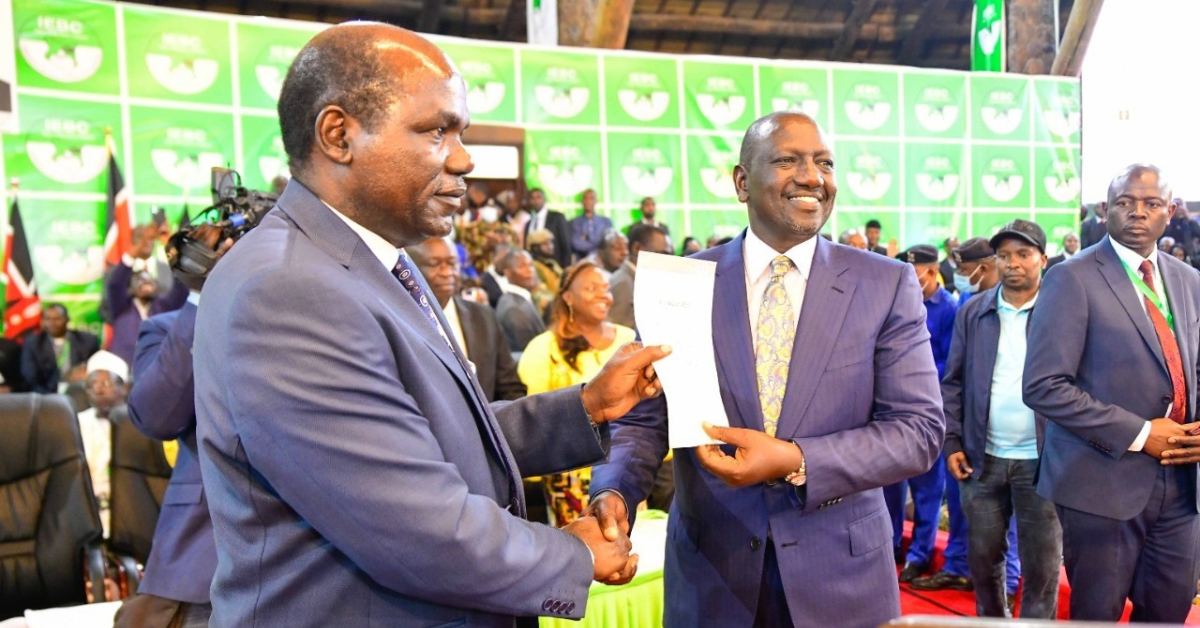It has been two weeks, but it must feel like two long years for one Wycliffe Musalia Mudavadi. The last time I checked some of the more popular Kenyan social media sites, the invectives and cruel jokes were still flowing freely. The adjectives that have been used to describe Musalia Mudavadi run the entire spectrum of the alphabet – from amusing on one end to zany on the other; and cry-baby, laughable, mad and naïve in the middle. If you were to look for a new pejorative adjective to use, you would be hard put; you would have to invent a new one.
Implicit – actually explicit – in all these is a reproachful narrative, rendered with wicked glee: ‘How foolish could you be? Wake up, man, this is Kenya. Here we stab each other in the back at will. Here we turn on each other in a dime. Honour and shame are for weaklings.’
But wait a minute; beyond the comic relief, what is really going on here?
During the same time that we were laughing ourselves sick at Musdavadi’s travails – calling it a comedy of errors – fellow Kenyans were being killed in Tana River and Garissa counties. As we cracked up at the expense of Mudavadi, the Parliamentary Committee on Public Accounts released a report that revealed the shocking news that government ministries and departments may have lost (stolen is the word) more than Ksh7 billion this year alone. During the same week, the Global Financial Integrity report revealed Kenya lost an estimated Ksh9.5 billion (only?) in illicit transfers in the last ten years.
Meanwhile, one of the local TV stations ran a feature titled “The Inside Story: Blood on Gold” shining a spotlight on dark and evil forces in and outside government involved in deadly gold smuggling. Just as in another such story by the same TV station early this year involving drug trafficking, innocent people get killed. No one is brought to justice. The culprits walk freely because, well, this is Kenya. If people get away with theft and murder, lying and trickery in politics is small beans. No big deal.
So, once we are done searching the alphabet and the dictionary for choice adjectives with which to ridicule Mudavadi, we might want to consider climbing down our high horses just for a moment to take a second look at what is really going on here. If we do, we might actually see that Mr. Mudavadi is holding up the mirror to us. If we look closely at that mirror, we might see a society that is rapidly detaching itself from its moral moorings.
We might then understand why, instead of lauding Mudavadi for daring to fight for that old fashioned thing called honour and the law (yes, it is possible even in the dismal art of politics), we are instead applauding Uhuru Kenyatta for his political jiu jitsu.
We might even understand why, even after the unprecedented murder of more than 40 policemen by cattle rustlers, or the killing of hundreds in Tana Delta, the people who should take responsibility, by at least resigning, go about their business untroubled.
If we look more closely at what is staring us back in that mirror, we might begin to understand why we have come to view blatant impunity as the new normal in our society. And why people who yesterday convinced us of the imperative of high morality politics; people we thought were paragons of virtue; people like Kiraitu Murungi and Mutava Musyimi, are today the practitioners of our-people-first politics.
If truth be told, we are on a slippery slope and we do not even know it.
If we have come to accept the dictum that politics is dirty, it follows that it is acceptable for politicians to use ‘dirty’ tactics to win elections. And, having gained power, it is acceptable for them to use dirty tactics in their governance practice, no? It is acceptable for them to lie to the electorate, steal and even kill, right? But that is the inescapable conclusion!
It is a race to the gutter – ethically speaking. It used be that the main qualification for leadership, now more than ever, was tribe and money. Now we have subterfuge as an added qualification.
Lest you accuse me of being naïve, I hasten to say I know we live in the real world where the battle for balance between evil and good, is waged daily with the objective of tilting the scales towards the good. The operative word is ‘waged.’ People who aspire to be leaders of millions should demonstrate greater facility and success in waging this war.
The joke is therefore not on Mudavadi, it is on us.
Instead of advising Mudavadi to ‘man up’, we should be admonishing ourselves to ‘wise up’.

